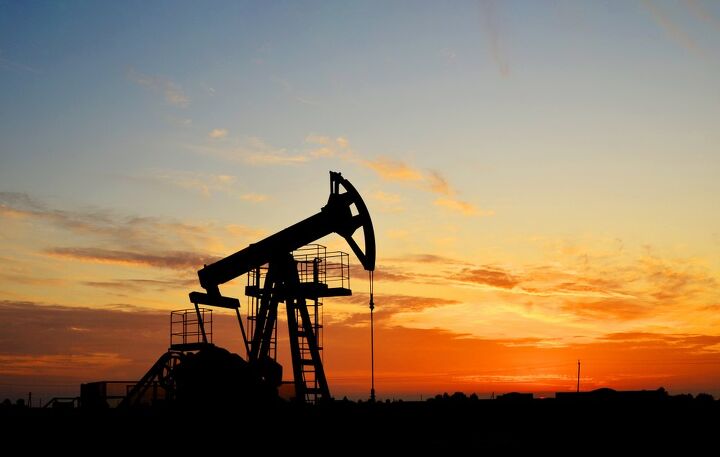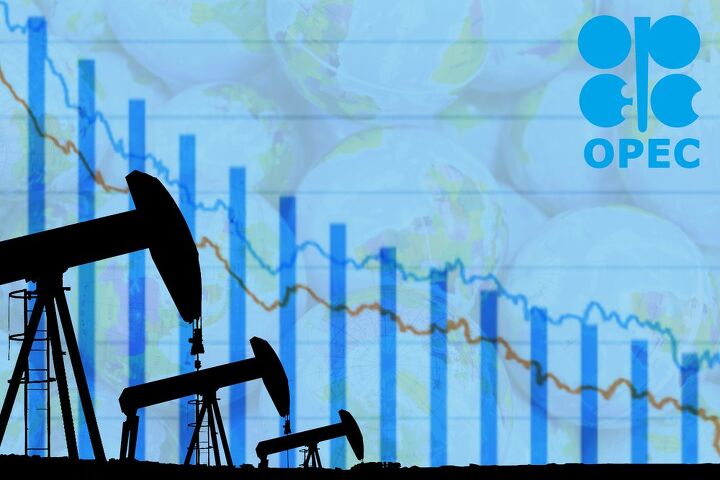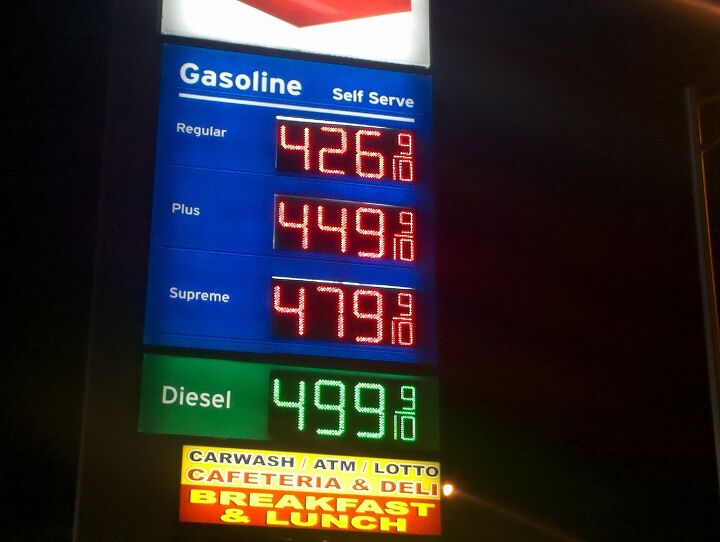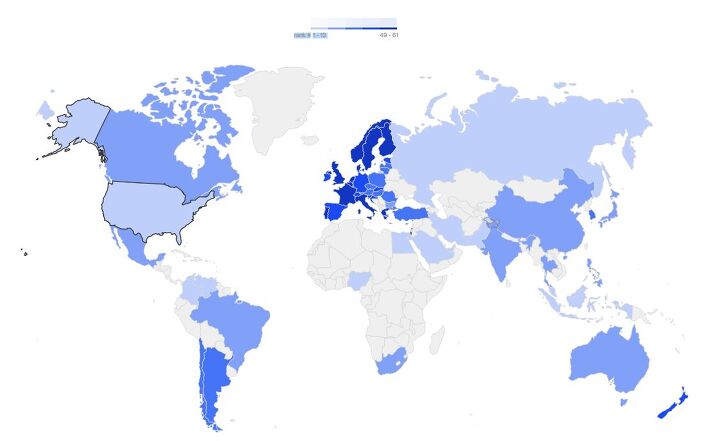#GasPrices
Study: Do EVs Really Cost Less to Run Than Internal Combustion Cars?
With the volume having been turned down on just about every business sector imaginable, automakers have spent most of this year explaining how supply chain shortages are impacting production and making promises about electric vehicles. However, the rhetoric surrounding electrification has gotten so aggressive that it’s fast becoming another contentious issue, leading to vicious arguments as people square up to take sides. Part of this is due to the enterprising way in which zero-emission vehicles are being marketed and subsequently embraced by world leaders that don’t know jack about the manufacturing or the environment. Much of the discourse surrounding electrification (pro or con) lacks nuance and leads to businesses promising whatever they can in an effort to obtain your unquestioning belief.
For example, EVs are frequently promoted as boasting substantially lower operating costs due to there being no reliance on liquid fuel. Though finding the truth actually requires one to make a comparative analysis while taking into account how, where, and what you’re driving. There’s even a new study out from the Anderson Economic Group (AEG) attempting to determine the true savings of swapping to an EV where the researchers ultimately decided gasoline-powered cars were actually easier on the wallet. However, that likewise requires loads of clarifying context and conditional factors.
There's Little Reason to Hunt for Fresh Oil in 2020
Ever since the first major oil fields were discovered at the start of the 20th century, the world has been on a never-ending hunt to see where else black gold might be hiding. Monetizing seepage areas goes back even further. But with global oil demand having dissipated on account of the pandemic, there’s little reason to spend cash on additional procurement.
Combine that with the green movement doing everything it can to convince governments there’s only one ethical way to handle energy, and we’re likely to be moving into an era where fossil fuels sell for less but cost more to harvest/utilize thanks to carbon emission regulations.
This has left oil companies pondering the true value of seeking new sources of oil, with some having already decided there’s no point.
Your Opinion Is Now Worth More Than a Barrel of Oil
While OPEC member states and other oil-producing counties have signed a pact to stem the flow of crude by 10 million barrels a day and hopefully rein in the current price-crashing glut, the situation remains bleak for oil producers around the world. On Monday, May futures for West Texas Intermediate (WTI) dropped to the floor, with prices hitting $5 per barrel.
That number shifted into the negative* as the above paragraph was being written. We’re guessing that’s because the end of the May contract forces physical receipts at a time when storage capacities are basically nonexistent. June WTI prices are still riding just below $23 per barrel.
Meanwhile, Brent Crude is hovering around $26 bbl as the OPEC Basket hangs onto $17.73 bbl on a 4-day delay. The assumption is that both will come down, though perhaps not as dramatically as WTI did.
Get Yer Jerry Cans Out
Looking for an added dose of bad news, recently laid-off, pandemic-sheltering readers? Gas prices should be heading northward before long, now that Russia and OPEC member countries have reached a pact to curtail oil production, thus inflating the near-worthless value of a barrel of crude.
That means prices at the pumps won’t be quite as enjoyable in the coming weeks. Maybe it’s time to brave the outside world tonight and fill up that tank — and any other safe, sealable vessel you can get your hands on.
Global Oil Producers to Hold Emergency Meetings This Week
The world’s largest oil producers are meeting this week for negotiations aimed at saving the energy sector a lot of hardship further down the road. That includes the Organization of the Petroleum Exporting Countries (OPEC), which has been at odds with itself more than usual of late. Hampered by dwindling demand, member countries are suffering and aren’t sure what’s to be done about last month’s price plunge and surplus of crude.
During the cartel’s last meeting, Russia declined to collaborate with OPEC’s planned production cuts. This sent Saudi Arabia into a furious tizzy; it quickly attempted to flood the market with bargain oil in an attempt to drive out lesser players. Like everything else, this was further complicated by the global pandemic. The coronavirus has suppressed oil use to a point where suppliers are growing concerned about storage capacity running out.
All Fueled Up and Nowhere to Go
According to the signs standing proudly outside local gas stations, there’s almost never been a better time to hit the road. At the same time, there’s never been more reason to stay at home.
The bizarre tug-of-war between today’s shockingly low pump prices and the need to self-isolate seems tailor-made to frustrate drivers everywhere; it’s a situation that only benefits those with a cabin in the deep, dark woods in some remote corner of the continent, as well as whatever commercial fleets are still in operation. Your author envies those folks with cabins.
OPEC Infighting and Coronavirus Adds Up to Affordable Gas
With the coronavirus keeping people indoors and shale drilling keeping U.S. oil prices relatively stable, you’ve probably noticed gasoline bills being quite reasonable of late. Well, don’t get used to the sums you’re paying now, as analysts project fuel prices will drop even lower as 2020 progresses. While you might think this is due to national quarantines and lessened demand, you’d only be half right.
Last week, the Organization of the Petroleum Exporting Countries (OPEC) failed to strike a deal that would have enacted production cuts to better stabilize the market. Instead of slashing output, Saudi Arabia started slashing prices as it sought ways to ramp up production. Russia immediately responded by promising to increase its own output, leading to what looks like an all-out price war.
Gas War Update, Choose a Side Edition
According to recent reports, there’s trouble with the White House’s fuel economy rollback. The Trump administration is said to have been meeting with automakers, asking them to stand behind its proposal to freeze economy standards at about 37 mpg until 2026. The New York Times indicates it was an act of desperation, spurred by claims that Mercedes-Benz was on the cusp of supporting the California compromise. Based on existing standards, which would raise the average fuel economy of new cars and trucks to 54.5 miles per gallon by 2025, the deal would delay its targets by one year.
Honda, Ford, Volkswagen, and BMW previously agreed to support California’s proposal in July. However, the deal is non-binding if the White House decides to push through a rollback, and most of the rhetoric being used by the industry seems more focused on a joint standard.
“A 50-state solution has always been our preferred path forward and we understand that any deal involves compromise,” read the automakers’ joint statement.”These terms will provide our companies much-needed regulatory certainty by allowing us to meet both federal and state requirements with a single national fleet, avoiding a patchwork of regulations while continuing to ensure meaningful greenhouse gas emissions reductions.”
Gas War: Efficiency Rollback Would Raise Fuel Costs, Study Claims
The fuel economy rollback posited by the Trump administration remains a hotly debated issue within the automotive community. Unfortunately, it has become mired in political nonsense, making decrypting the real-world impact of embracing or shunning it rather difficult. Consumer Reports recently took a stab at making sense of the matter, coming out in favor of balking at the notion of a rollback on the grounds that it would ultimately raise fueling costs.
Last year, the administration proposed capping fuel economy and emission standards at 2020 levels, instead of allowing them to rise annually as under existing regulations. The opposition, fronted by California, is vying to maintain the existing standards — with the possible compromise of delaying them by one year.
QOTD: Hitting the Breaking Point?
A few miles north of the American border lies a humble, affordable town called Vancouver — a town which just set a record.
That record? The highest gas prices anywhere in North America, ever. Surely, a feat worth celebrating, especially by Car Twitter personalities who own half a dozen vehicles but believe gasoline should cost $7 a gallon to stop people who aren’t them from driving. Well, such purveyors of hot takes got their wish, though for now it’s relegated only to the southwest corner of British Columbia. On Monday, gas stations in Metro Vancouver reported 87 octane prices hovering around $6.55 a gallon, though one station was seen selling it for $6.77.
During afternoon rush hour, quaffers of high-test faced prices of $7.23 a gallon. And prices are expected to rise by the end of the week, too. If transplanted overnight to this bastion of sin (taxes), how long would you continue driving what you’re driving?
Report: Certain Canadians Getting Boned At the Gas Pump
Barely a day goes by when the TTAC chatroom doesn’t devolve into a discussion of the weird differences between the U.S. and Canada. Chris Tonn wants to take a Nissan Micra across Canada, eating various poutines along the way, while this writer drools over certain (unavailable) civil liberties offered just 45 minutes to his south. Vast gulfs in pricing and taxation usually spring up as topic fodder, too.
Given the amount of money yours truly forks over for gas, there’s additional drool reserved for U.S. pump prices. Various taxes heap, on average, an extra 38 cents on every liter of unleaded up here. That’s an extra $1.44 for each gallon, and the roads aren’t exactly paved in gold.
Now, imagine learning you’ve been paying way too much for three straight years.
Study Claims Car Shoppers Don't Care About Swelling Fuel Prices
Average fuel prices in the United States managed to triple between the years of 1999 and and 2012. While we’ve been fortunate enough to enjoy relatively low prices at the pump over the last few years, analysts predict the current spike will continue through the summer.
However, a recent study from Kelley Blue Book suggests most new-vehicle buyers don’t give a flip about it, with consumers claiming the price surge won’t influence their vehicle purchasing decisions in the slightest.
The assumption that the cost of gas will stabilize in the fall could play a factor for some, but many respondents say the price per gallon would have to reach $4 before they became rattled enough to consider swapping to a more economical vehicle.
Global Gas Prices: Where Do We Fit?
You’ve no doubt noticed that gas prices have been creeping up while 2018 progresses. But North America still has it pretty good, especially the United States. Despite fuel prices creeping up to almost $3.00 per gallon, the U.S. still enjoys cheaper gasoline than most of the Western world. Even Canada, which is currently coasting around $4.45 per gallon, manages to undercut the nightmare that is Europe by a wide margin.
North America as a whole spends more on gas per person then practically everywhere else on the globe, though. An affinity for larger vehicles, combined with more time spent behind the wheel, translates into burning more fuel overall. I suppose one could make the argument that we need cheaper petroleum since we use so much of it — just be ready to have someone call you selfish.
For example, the United Kingdom has prices set around $6.59 for a gallon of that good stuff but the average citizen only uses 69.67 gallons a year. However, the average American turns 429 gallons of gasoline into forward motion.
Premium is the New Regular: Automakers Want to Kill 87 Octane
The automotive industry wants to make 95 octane gasoline the new normal for the United States and it has taken its case to Washington. On Friday, Dan Nicholson, General Motors’ vice president of global propulsion systems, told the House Energy and Commerce Committee’s environment subcommittee that switching to 95 octane would align the U.S. with Europe and is one of the most affordable ways to boost fuel economy and lower greenhouse emissions.
Affordable for automakers, that is. Because there is no reason to think your local gas station will suddenly do you a solid and price 95 octane lower just because 87 is gone.
QOTD: What Would It Take to Change Your Mind?
Remember the grim days of 2011-2014? Sure, they weren’t as grim as, say, 2008-2009, but if you remained employed — and owned a car — during both of these periods, you’ll remember the cratering of gas prices during the recession and the subsequent upswing. That upswing turned into a plateau, where lofty prices at the pump compelled many Americans to rekindle a romance with a small, fuel-efficient car.
The early summer of 2014 brought relief. A lot of it. Prices plunged, remaining relatively low ever since. Everyone and their mother rejoiced, then rushed to their local dealer to buy an SUV.
As of late, though, prices are again on the rise — especially if you live on the West Coast or north of the border. The national U.S. average pump price for regular unleaded hovers around $2.70/gallon this morning, but take a trip north and you’ll find a country where wallets are hoovered at every gas station in the land. National average price in Canada? Rising above $4.80/gallon today.
It’s enough to make you take a long, hard look at what’s sitting in your driveway.



























Recent Comments